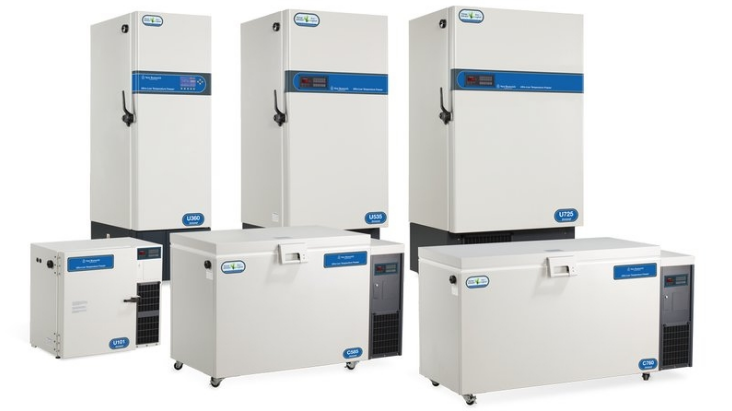
Is it time to upgrade your laboratory freezers and refrigerators to medical grade appliances? There are big differences between domestic appliances and biomedical ones.The U.S. Centers for Disease Control defines biomedical refrigerators and freezers as purpose-built units, specifically designed for medical and laboratory use. These units precisely measure temperatures with microprocessors and digital sensors, and have fast-temperature recovery systems in place to immediately adjust out-of-range temperature fluctuations. The benefits of medical freezers and refrigerators range from alarms to their specialized sensors and technologies that keep temperatures consistent.
Medical units and laboratories should not use domestic household refrigerators and freezers which don’t adhere to federal guidelines. The CDC recommends replacing outdated equipment with medical-grade refrigerator and biomedical freezer units.
But why? What are the benefits of biomedical freezers and refrigerators, and why are they the best option for your research or medical storage needs?
Medical Freezers and Refrigerators Ensure an Unbroken Cold Chain
Biomedical refrigerators and freezers use temperature monitoring to ensure all items are consistently kept at the right temperature to prevent degradation of samples, biologicals,reagents, and other temperature sensitive materials.
Medical grade freezers and refrigerators also seal tighter than domestic refrigerators to decrease temperature fluctuations. In addition, medical freezers and refrigerators with glass doors allow technicians to find items before opening the door, helping to maintain temperature by limiting the amount of time the door is open.
Biomedical grade appliances are also capable of reaching temperatures far below that of domestic freezers and can freeze things faster than their household counterparts.
Increased Air Flow
Domestic freezers and refrigerators frequently have glass shelves, which can impede air circulation. Glass surfaces don’t maintain even temperatures, causing instability in your cold storage.
Biomedical appliances are designed with airflow in mind, relying on fan-forced circulation systems, ventilation, and metal or wire shelving.
Alarm Systems
Most pharmaceutical grade freezers and refrigerators have external temperature monitoring devices, or TMD. This allows technicians to keep track of temperatures within the appliance without opening the appliance doors.
An alarm system alerts personnel that a temperature change has occurred, allowing prompt remediation. A digital data logger (or DDL) keeps track of historical temperature readings, allowing personnel to monitor the length of time a refrigerator or freezer has been operating outside the required temperature range.
All three of these common features of biomedical appliances will increase the accuracy of temperature settings, notify personnel when there’s an issue, and help make rapid adjustments should a problem occur.
Power Outage Protection
Domestic freezers and refrigerators rely on wall outlets, in turn relying on an external energy source. When the power goes out, so do household appliances.
Medical freezers and refrigerators have backup battery systems they can use in case of a power outage.
Added Security
Some biomedical appliances have digital locks to control access, protecting your supplies and biologics as well as discouraging laboratory staff from using the refrigerators for personal reasons.
Cost Savings Benefits of Biomedical Freezers and Refrigerators
All of the above benefits will result in cost savings, whether it’s preventing waste through temperature fluctuations, having a reliable history of freezer and refrigerator temperatures to ensure accuracy in testing, or increasing security to prevent theft or misuse of your appliances.
BaneBio is available to help you upgrade to biomedical freezers and refrigerators, with options for purchasing both new and used equipment as well as for selling us your outdated appliances.

